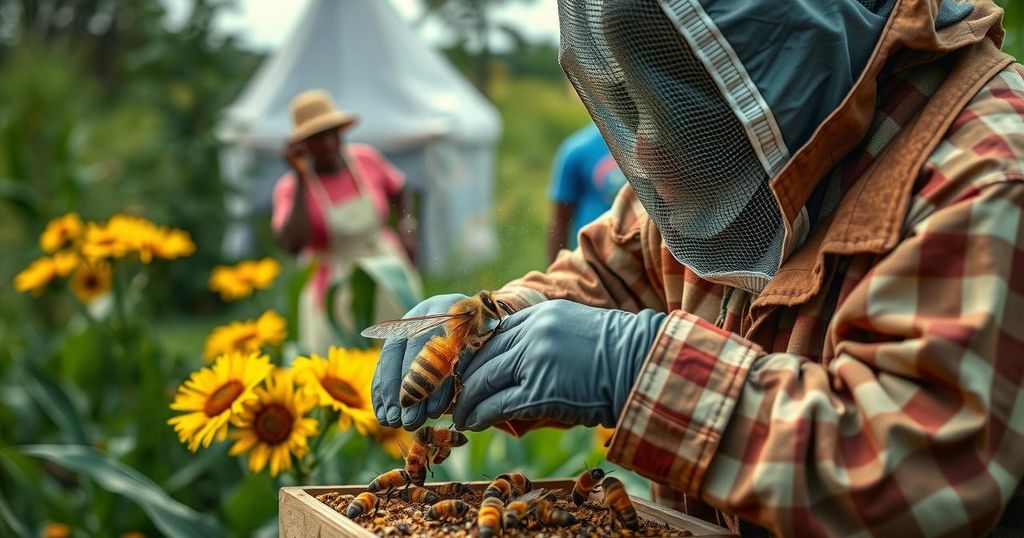Communities in Kenya’s drylands are transitioning to beekeeping as a response to the challenges posed by climate change. This shift aims to create sustainable livelihoods, enhance food security, and promote environmental conservation. Conservation experts are playing a pivotal role in facilitating this transition and empowering local populations.
In Kenya, communities residing in arid regions are facing severe challenges due to climate change, particularly as traditional livelihoods such as farming and livestock keeping become increasingly untenable due to erratic weather patterns. In response to the urgent need for sustainable alternatives, conservation specialists are guiding these communities towards beekeeping as a viable income source. Beekeeping not only offers an avenue for economic resilience but also fosters environmental sustainability through pollination and biodiversity conservation. Through training and resources, these experts enable local populations to cultivate honey production, thereby improving food security and enhancing their ability to adapt to climate-related adversities.
The impacts of climate change are disproportionately severe on communities in dryland areas, where livelihood options have been traditionally centered around agriculture and animal husbandry. According to the U.N. Environment Program, these communities face increased frequency of droughts and floods, threatening food security and economic stability. Beekeeping presents a promising alternative, as it requires fewer land resources and can thrive even in marginal conditions. This practice not only aids in the generation of income but also supports the overall health of local ecosystems, making it an effective strategy for climate adaptation.
In conclusion, beekeeping serves as a crucial adaptation strategy for communities in Kenya’s drylands who are grappling with the adverse effects of climate change. By pivoting towards this sustainable practice, local populations can secure alternative livelihoods while contributing to ecological balance. The initiatives taken by conservation experts are instrumental in equipping these communities with the necessary skills and resources, ensuring they can thrive amidst environmental challenges.
Original Source: www.voanews.com






